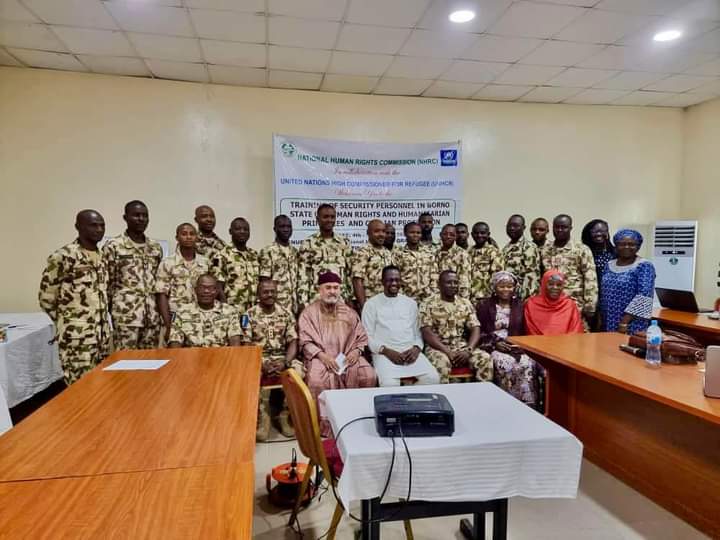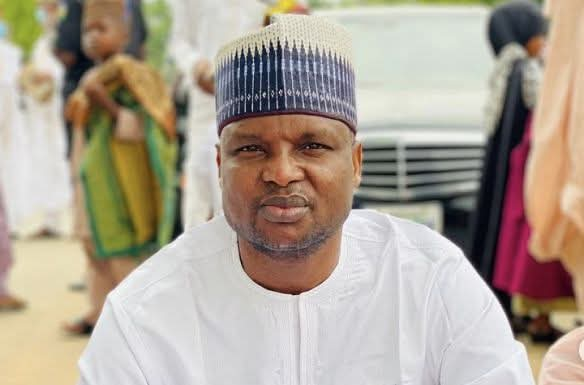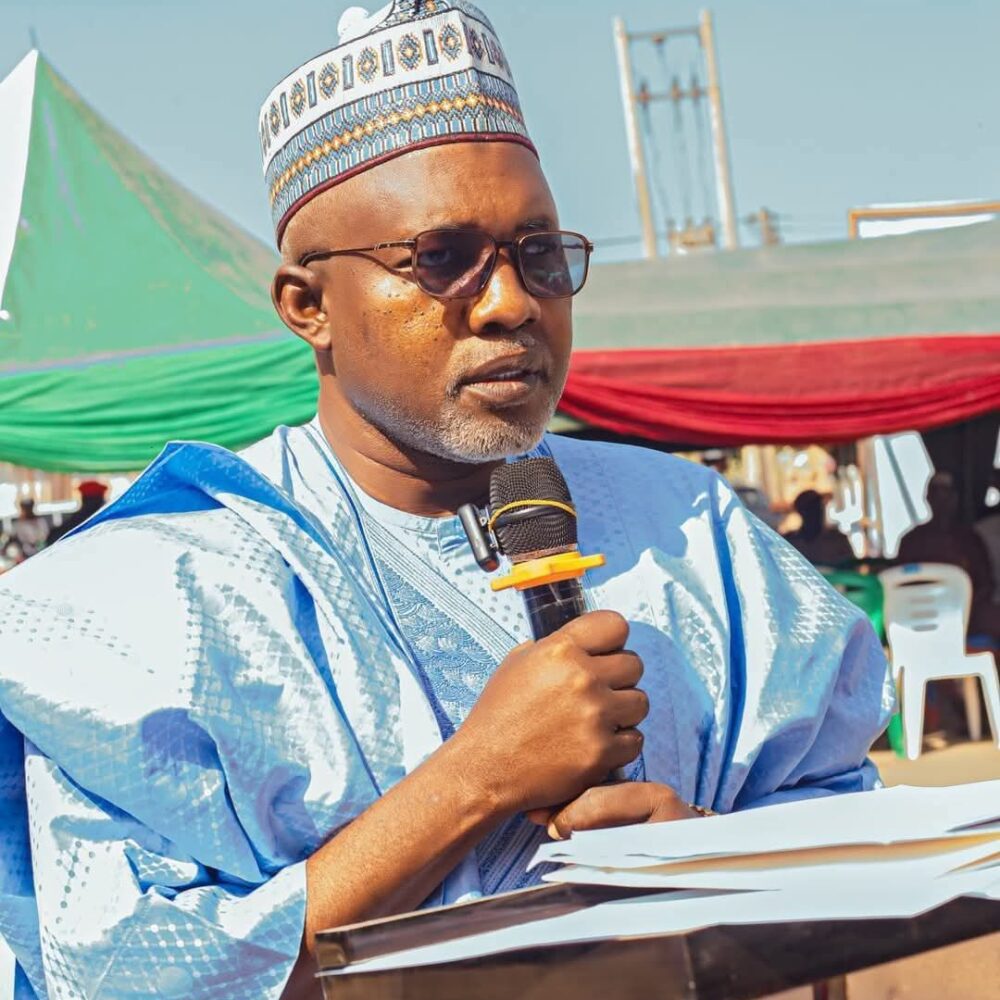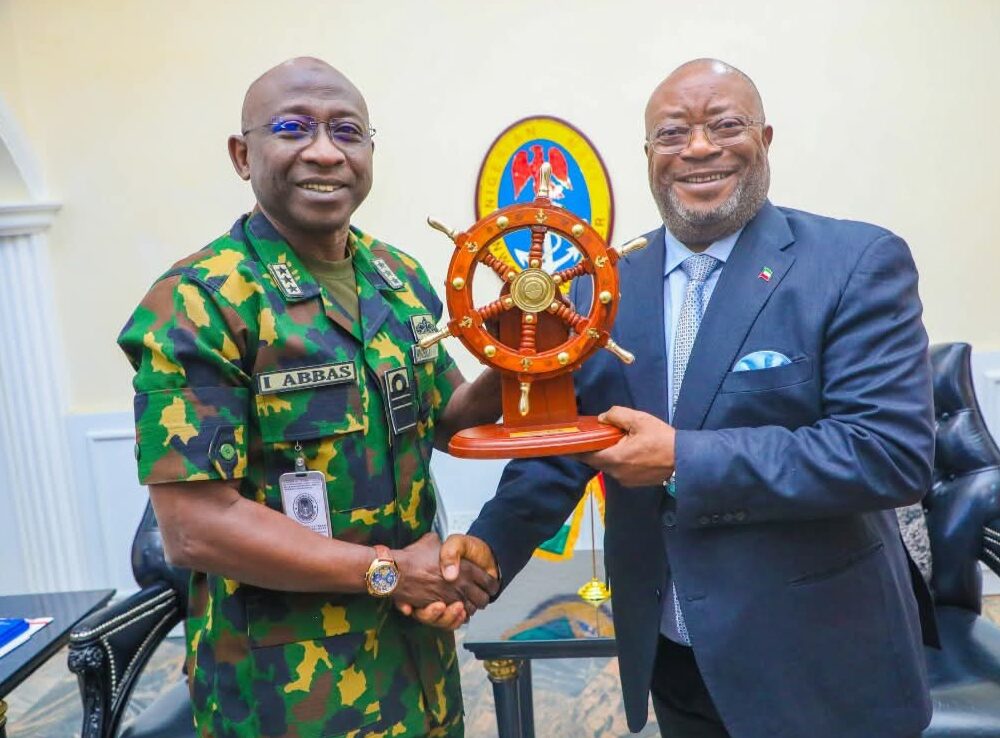The Executive Secretary of the National Human Rights Commission (NHRC) Chief Tony Ojukwu SAN has tasked the Military to do more in improving Civil-Military Relations (CMR) as this will yield better result in addressing the present security challenges confronting the country.
Ojukwu gave this charge during a two-day training programme organized by the NHRC in Collaboration with United Nations High Commissioner for Refugees (UNHCR) for Security Personnel in Maiduguri, Borno State. The training is one of the activities under the NHRC/UNHCR 2022 Project on Protection of Population of Concern through Human Rights Monitoring in Borno, Adamawa, and Yobe States.
While addressing journalists at the event, the Executive Secretary who was represented by the Director, Department of Women and Children Mr. Harry Obe, said information was very key to the success of any Military Operation anywhere in the world, adding that superior information needed for prompt Military Operations can mostly be provided by the civilian population.
He further said the civilian population should be made to feel safe and secure to provide reliable information; this according to him can be achieved by stronger Civil-Military Relations which is key in this crucial period.
“We are in an asymmetric war where the insurgents who cannot be easily identified by just anyone, freely mix up with the people to perpetrate their dastardly act” Ojukwu lamented. He added that “People are no longer free to go about their normal businesses, there is so much fear in the minds of the people, old and young, rich and poor, the security situation knows no bounds”.
The NHRC Helmsman further stated that if security is everybody’s business, it means the Military cannot provide security alone without the support of civilians, thus community base intelligence gathering becomes very imperative. There should therefore be concerted efforts by members of every community to fish out the alien among them, and the Military on the other hand should give them the encouragement and confidence to provide all necessary information needed for their operations he urged.
“We must all put heads together to take steps to be ahead of the terrorist and bandits,” Ojukwu said. “Nigeria has been experiencing the menace of terrorism and insurgency, we must all make efforts to change the narrative” he further advised.
He used the medium to commend the Nigerian Military for improved compliance with human rights norms during Counter Insurgency Operations in recent times.
“We have recorded appreciable improvement by the Military and other law enforcement agencies in the protection of civilians during conflicts” he disclosed, adding that “the people prosecuting the war are aware that the citizens have the rights to be protected and they are also conscious of the responsibilities to discharge their mandates in line with human rights standards’’.
Ojukwu said that the periodic training which started in 2015 had greatly helped reduce the casualty level in conflicts as well as the humanitarian consequences of internal displacement.
Head of UNHCR Sub Office in Borno, Mr. Mohammed Ifran who was represented by the Protection Officer Mohammed Ali, acknowledged the role of the Military in protecting the population of concern. He said the successes recorded in the fights against insurgency in the North East would not have been achieved without the gallant efforts of officers and men of the Nigerian Military.
He then urged participants to step down the training to their colleagues when they go back to their various offices.
Participants at the training expressed appreciation to the organizers saying the training is timely and will build their capacity in discharging their responsibility in their areas of operation.





